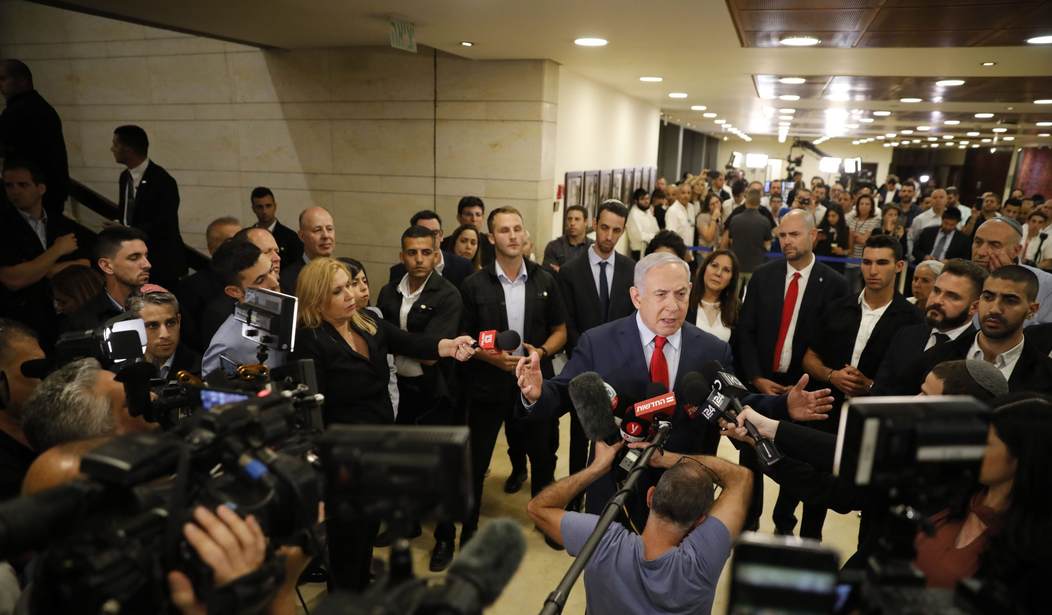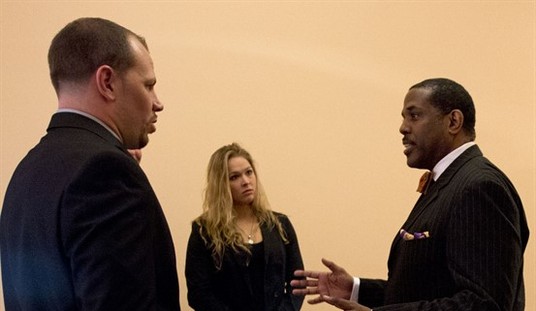Seven weeks ago a right-wing and religious coalition headed by Benjamin Netanyahu handily won the Israeli elections, gaining 65 seats of the 120-seat Knesset—and just missing 69 seats as another right-wing party fell a tiny bit short of the four-seat minimum.
On Wednesday night the new Knesset—sworn in a month ago—voted 74-45 to dissolve itself, and Israel is heading back to the polls on September 17. Seven weeks ago, no one at all saw it coming.
Basically one man—former defense minister Avigdor Liberman—is behind it.
Liberman—a mercurial politician who has also been foreign minister and deputy prime minister among other posts—is a longtime Russian immigrant who gets most of his votes from the Russian-Israeli community. This time around his party, Yisrael Beiteinu (Israel Our Home), won five mandates. Without Israel Our Home, Netanyahu’s would-be coalition had 60 seats—one short of a Knesset majority.
Liberman, in the end, refused to bring his five-seat party into the new coalition, and the house came crashing down.
Why did Liberman do it?
The Russian-Israeli community is unique in Israel in tending heavily both to hawkishness and secularism. Generally and statistically, religiosity correlates with right-wing hawkishness, secularism with left-wing dovishness (though secular right-wingers are not unusual; the right generally has the upper hand).
Liberman himself answers to the Russian-Israeli description. Last November, as defense minister, he resigned his post out of what he saw as a too-dovish policy on Gaza rockets. Earlier in the year his Defense Ministry drafted a new bill for conscripting ultrareligious (haredi) Israeli Jews into the military, and it passed a first reading in the Knesset. Liberman saw the bill as his baby.
The Israeli haredi population has an especially high birth rate and keeps growing. In the 2015 elections, its two political parties (one Ashkenazi, one Sephardic) won 13 seats together; in the April 2019 elections, they went up to 16.
The haredi sector has long irked the general Israeli population by refusing army service, insisting on a life of study in yeshivas (Jewish religious seminaries). Over the past decade, the trend has changed with more haredi young men serving—but still comprising only a minority of draft-age haredim.
The bill crafted by Liberman’s Defense Ministry aimed to increase the number of haredim who serve—starting with 3,348 annually (and 648 in civilian national service) and reaching 6,844 annually (in military and civilian service) by 2027. That would still be well short of all draft-age ultrareligious men.
If individual yeshivas didn’t meet their enlistment targets, the bill would have imposed fines on them. If the haredi community as a whole kept flouting the law, the law would have expired and young haredim would have been subject to mass conscription like the rest of the Jewish population—or faced prison terms.
That set the stage for the showdown between Liberman and the two haredi parties in the April-May 2019 coalition negotiations. Liberman saw the bill as reasonable and insisted that it move on—unaltered—to a second and third reading in the new Knesset. The haredi parties wanted the bill significantly weakened if not scrapped. No compromise could be reached, and the new short-lived Knesset crumbled.
What’s the cost-benefit calculus of this still-stunning, unprecedented development in Israeli history? The costs are undeniable: with Israel’s generally strong economy already facing a growing budget deficit, the new election campaign will cost more hundreds of millions of shekels. And for three months the country—facing the usual difficult security and diplomatic issues—will have to totter along without a real, coherent government or Knesset.
But there could also be benefits. To see why, consider what it means for the general Israeli population to keep funding an ever-growing haredi yeshiva network—a large part of whose members don’t engage in either military service or productive work. Consider also the galling injustice of one sector insisting that its lifestyle precludes assuming the burdens and dangers of defending the country against its very zealous enemies.
Liberman’s refusal to budge on the enlistment law—to the point of singlehandedly plunging the country into a second consecutive election campaign—will undoubtedly go down in Israeli history; the question is—for good or bad? I’ll probably surprise some of my friends by saying that, while not a fan of his in particular, in this case I admire Liberman’s standing on principle. I hope it will be a clarion call for more politicians and more citizens to start insisting that everyone—including the ultrareligious—pull his weight. Especially in a country that still faces the challenges Israeli faces, laws and obligations have to apply equally to all.








Join the conversation as a VIP Member